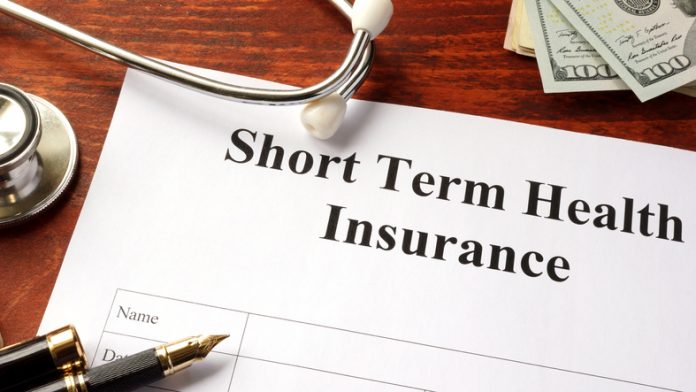Short-term limited-duration insurance (STLDI), which is a low-cost option for healthy people, can reduce premiums in the broader individual market, shows a new report by the Galen Institute.
According to the report, Individual Health Insurance Markets Improving in States that Fully Permit Short-Term Plan, states that have increased access to STLDI plans have been able to keep more people in the insurance market, which has had a positive impact on premiums for plans on the Obamacare exchanges.
“Premiums have fallen by more than double in states that permit short-term plans,” said Brian Blase, Ph.D., author of the report, a senior fellow at the Galen Institute, and CEO of Blase Policy Strategies. “There are two reasons why: competition, and if someone is in a short-term plan that lasts longer and gets sick, the short-term plan will pay those expenses.”
States that limit the period an individual can hold a short-term plan may drive more sick people to the exchanges when the term ends. Those costs are then absorbed by Obamacare plans and taxpayers who subsidize them.
How Short-term Plans Work
Short-term plans are less expensive than Obamacare plans because they are exempt from certain coverage requirements. Enrollees can purchase the plans at any time during the year and, depending on the state, can get coverage up to 364 days with an option to renew the coverage for three years. The longer duration allows more protection to an enrollee who happens to get sick and requires extensive care beyond the plan’s expiration date.
The Obama administration limited the length of short-term plans to 90 days with no renewal option over concern that STLDI would take healthier people out of the individual market. The rule made the plans less attractive because consumers would have three months before their deductible was reset. Additionally, enrollees took the risk of not having coverage until they could enroll in Obamacare plans in November if they were to get sick.
In 2018, the Trump administration restored the plans to their original status in addition to defining short-term as 364 days and giving the option to renew for three years. It beefed up notification requirements so that consumers understood the limitations of the plans.
States can restrict STLDI altogether or limit the duration and renewal terms. According to the Commonwealth Fund, five states prohibit STLDI, 18 states limit the terms in some form.
State Laboratories
That mixed participation provided an opportunity to test STLDI’s impact on state markets, Blase said on the Heartland Daily Podcast on February 17.
“I assessed enrollment trends, insurance participation in the exchanges, and the premiums for exchange plans,” Blase said. “Surprisingly, perhaps in every case, it turns out that states that fully permit short-term plans have had better trends in their individual markets.
In addition to premiums falling by more than double in those states, more people were enrolled in health insurance and more insurers participated in the Obamacare exchanges.
“For the most part, I think [insurers in the exchanges] view [short-term plans] as competition, and that is good,” Blase said. “If these plans are an alternative, that is going to put pressure on insurers to offer better value of those products.
Blase said providers favor short-term plans because the reimbursements tend to be higher.
Future of STLDI
It is unclear where the Biden administration stands on STLDI. President Biden signed an executive order on January 28 protecting the Affordable Care Act. “It didn’t mention short-term plans by name but alluded to regulation that might be forthcoming,” said Blase.
Democrats in Congress have derided STLDI as “junk.” Blaze says there are now a variety of STLDI plans on the market that offer more coverage for more money. An estimated 3 million people are enrolled in short-term plans, according to the Commonwealth Fund.
Restricting or eliminating STLDI would violate a promise Biden made on the campaign trail, Blaze wrote in his report.
“If the Biden Administration restricts short-term coverage, it could likely increase the total number of uninsured by upward of one million people, decrease choice and the number of lower-premium products available to consumers, and reduce competition in state health insurance markets,” said Blase.
AnneMarie Schieber (amschieber@heartland.org) is the managing editor of Health Care News.
Internet info:
Brian Blase, “Individual Health Insurance Markets Improving in States that Fully Permit Short-Term Plans,” The Galen Institute, February 2021: https://galen.org/2021/individual-health-insurance-markets-improving-in-states-that-fully-permit-short-term-plans-2/
Why Biden Should Leave Short-Term Limited Duration Insurance Plans Alone, The Heartland Daily Podcast, February 17, 2021: https://www.heartland.org




















